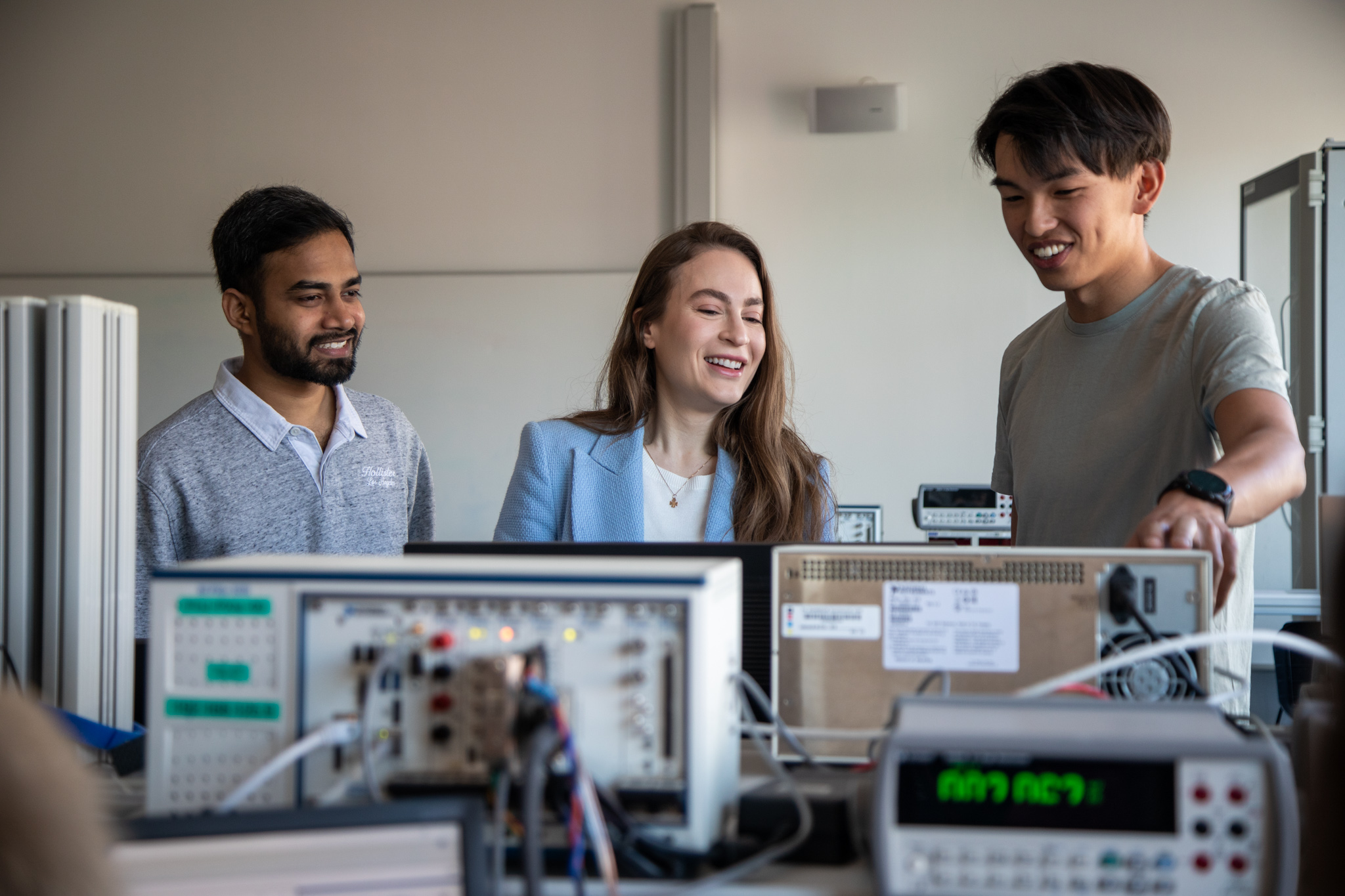
Ready, study, go!
Start your studies top informed.

Study your dream!
All information about studying.

Stay in touch!
Stay connected with the university.

Study with Purpose!
Discover our study programmes.

Advance with Purpose!
Lifelong learning and thinking ahead.

Research with Purpose!
Research from idea to application.

Better together!
As a university we create new opportunities.

Innovative. Agile software and hardware development.
The high level of complexity of intelligent electronics requires new approaches to product development. You will learn about the latest methods and principles of agile software and hardware development, allowing you to develop products in a flexible and iterative manner. You will design quality assured, reliable software and hardware for a dynamic world.
AI. Machine learning and data analysis.
You will deepen your understanding of statistical methods and data analysis in order to develop data-driven solutions for a variety of applications. You will learn to understand and apply advanced machine learning techniques and algorithms to extract patterns and insights from large datasets.
High-tech. System-on-chip design.
Today’s integrated circuits combine a multiplicity of functions on a single chip, making them a “system on a chip”. You will gain a thorough grounding in microelectronics and microprocessor technology, so that you can design and validate complex and powerful chips.
High-performance. Real-time computing.
Real-time responses to inputs and events are critical for applications such as autonomous driving, industrial automation and energy networks. You will study modern computer and software architectures for embedded systems, enabling you to use machine learning and signal processing algorithms to process large volumes of data with minimal delay.
Master’s Thesis and Scientific Work
In your Master’s thesis you will carry out research in your specialised field and present the results in a scientific manner.
Organistaion
Our degree programme takes an overwhelmingly practice-oriented approach. Students work in small groups in excellently equipped laboratories, ensuring they receive individual supervision and plenty of hands-on experience. Moreover, study and in-person attendance is scheduled between Wednesday and Friday, giving students the opportunity to gain additional experience by working part-time for a company in the industry.
